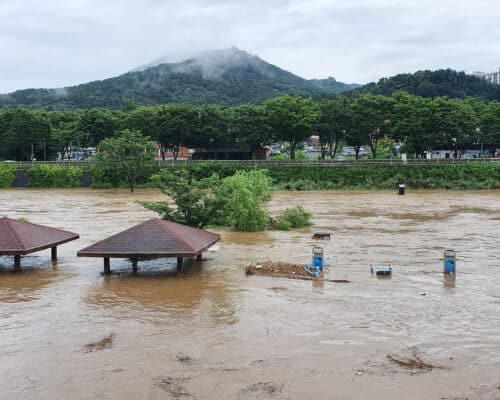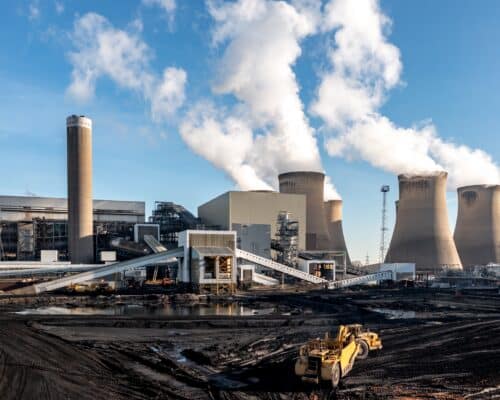Region
Japan’s Energy Policy Is Turning It Into the World’s Climate Villain
Japan is quickly becoming the odd one at the table of the G7 regarding climate policies. Scientists, analysts and environmental and societal groups see it as the culprit of climate change inaction. It is time for Japanese governmental and corporate leadership to change that perception.

The LNG Plans For Samsung’s New Megaproject Threaten Its Reputation
Today, Samsung is far from being a climate leader - neither in terms of current progress nor when it comes to pledges. However, the company has all the means to become one. Advocating for more renewables and less fossil fuels in South Korea's climate policies is a crucial first step.

LNG Expansion in the Philippines Harms Communities and Coral – Podcast
Energy Insights spoke with Liza Osorio about the Philippines and San Miguel Corporations' LNG expansion impacts on communities and coral reefs.

Climate Change in South Korea: Floods, Heat and Looking Away
South Korea's strategy to address climate change's impacts is reactive, not proactive, while its newly adopted policies and upcoming plans continue to undermine renewables.

How Solving Energy Poverty Will Boost Health and Climate Goals
We speak with Sugandha Srivastav of Oxford University about energy poverty, access and developmental economics.

Bangladesh’s Energy Needs and a Fair and Just Energy Transition
The switch towards renewable energy will not be the main threat to Bangladeshis' jobs and well-being. It's climate change.

Vietnam Has Approved the PDP8: What Comes Next?
The approval of the PDP8 is finally here. While not without its potential flaws, the plan allows Vietnam to start leaping towards its net-zero by 2050 target – a moment that energy investors have long been waiting for.
G7 Gas Move a Likely Nod to US and Japanese Interests
The G7 just concluded its meeting in Hiroshima. The group made several decisions impacting the global energy sector, including further reliance on coal-fired power projects and a problematic call to continue gas and liquefied natural gas (LNG) investment. These decisions come in light of long-term US and Japanese gas interests and development.
The G7’s Responsibility to Help Bangladesh and Other Climate-affected Countries
At the approaching 2023 G7 meeting, the world expects global leaders to address the elephant in the room: fossil fuel phase-out. The G7 must set an example and develop a unified vision to help address climate change – an issue heavily impacting developing nations.
Renewable Energy Projects in the Philippines: 100% Foreign Ownership Authorised
The Philippines' drive to ramp up its renewable energy sector is a step in the right direction. However, it needs even more renewable energy development and investment. The government must also make a net zero by 2050 pledge to catch up to its regional neighbours.

Japan’s G7 Fossil Fuel Push – Podcast
Susanne Wong, at Oil Change International, speaks about Japan and the fossil fuel push at the G7.
Energy Security in Bangladesh is Threatened by Fossil Fuels
The fossil fuel dependence of Bangladesh has significantly impacted its economy. The country should no longer bear the exorbitant power costs and unreliable supply, especially when better, cleaner and cheaper options exist.
Japan’s Priorities as G7 President
Japan's priorities as G7 president appear to centre around trade, energy security and digitalisation. While not surprising, there are still questions as to how Japan will align these issues with existing G7 initiatives.
Japan’s Ammonia Plans Threaten the Carbon Emissions Reduction of Southeast Asia
Aside from a few positive outcomes, the G7 ministerial meeting ended disappointingly due to a final communique with vague wording and weak commitments. This sets the stage for Japan to continue doing business as usual.
Most Popular
Categories
-
10
-
34
-
126
-
4
-
17
-
46
-
52
-
11
-
10
-
15
-
24
-
6
-
1
-
5
-
6
-
282
-
200
-
17
-
24
-
1
-
1
-
23
-
41
-
44
-
88
-
18
-
86
-
41
-
17
-
11
-
43
-
54
-
86
-
299
-
22
-
44
-
36
-
10
-
42
-
36

